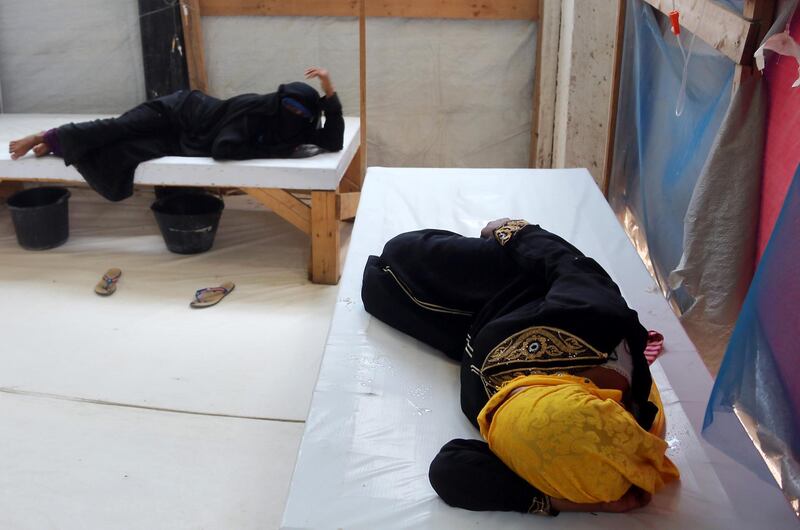The Yemeni Ministry of Public Health and Population launched a new cholera immunisation programme that will target several cities across the country.
The five-day campaign will see 257,000 Yemenis over the age of one receive the cholera immunisation in an attempt to curb the spread of the waterborne disease.
As the second round of the immunisation programme, the campaign will run throughout the week and aims to provide immunisation to the residents of several areas in the south.
Medical teams from the Ministry of Health have been dispatched to visit 76,000 residences in those areas to administer the injections.
With support from the @WorldBank, @gavi, @KSRelief, @UNICEF and @WHO, a 5-day oral #cholera vaccination campaign was launched today in #Aden (5 priority districts) to protect around 270,000 people above the age of 1 from the deadly disease. #Yemen pic.twitter.com/UMk4RcxuUG
— WHO Yemen (@WHOYemen) October 27, 2018
"Yemen is in the throes of the largest cholera outbreak ever recorded... The recent support given by KSRelief, UAEAID, Gavialliance, and World Bank to cholera vaccination campaign made a world of difference for hundreds of thousands of Yemeni families" said the World Health Organization earlier this month.
Meanwhile, Masam, a Saudi-funded disarmament programme, has managed to defuse and eliminate 11,785 landmines planted by Houthi militia in different parts of the country including farms, houses and schools.
"The western coast areas are the most affected by the Houthi mines due to the easy environment to be planted especially in the farms and along the sandy roads and along the coast line," Major-General Qiad Haiytham Halboob the executive director of the Yemeni mines action centre in the liberated provinces told The National.
The disarmament project efforts in Yemen were further bolstered by the Giant Brigades, an Arab Coalition-backed Yemeni force, which has been able to intercept explosives reportedly manufactured by Iranian experts. The explosives were designed to resemble palm tree trunks.
Ali Al Barakani, who works as a deminer in the Giant Brigades, said that the Houthis attempted to hide the explosives in a palm tree farm located in Kilo 16, east of Hodeidah.
Mr Al Barakani said he has seen the Houthis manufacture explosives disguised as rocks and dolls but never in the shape of palm trees.
“Manufacturing such devices with a shape of palm trees is new, we haven't seen it used before which indicates that Iranian experts are still available in Yemen, they provide such support for the Houthi militia because we are absolutely sure that Yemenis don't have such experience, " Mr Al Barakani said.
On the battle ground in Hodiedah, sporadic intensive confrontations between the Houthi militia and the pro-government forces continued on Saturday night taking place in Kilo 10 area and along the street which leads to the University of Hodiedah.





